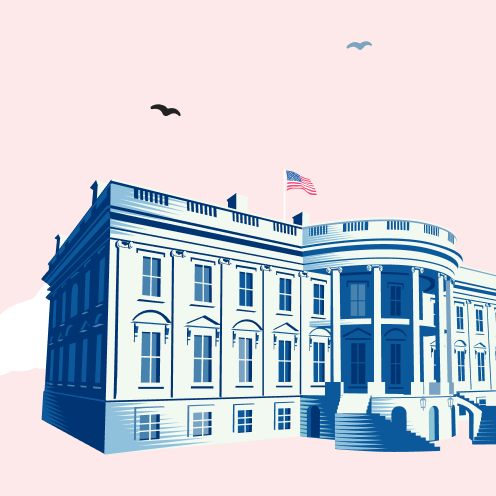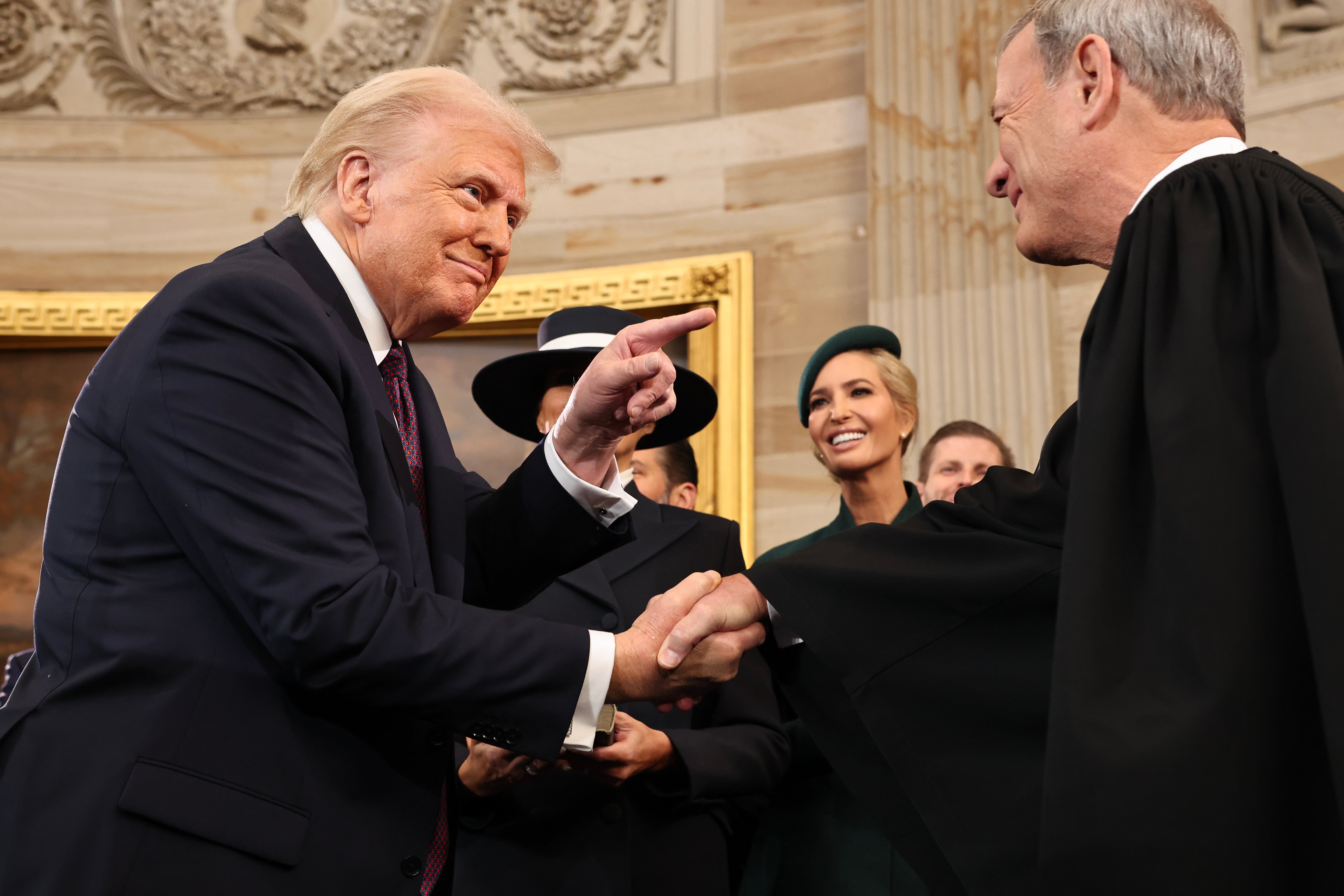- News
- World
- Americas
- US politics
Trump has repeatedly claimed that tariffs — which are ultimately import taxes paid by Americans — are paid by foreign countries
Andrew Feinbergin Washington, D.C.Monday 24 November 2025 16:40 GMTComments
 CloseSen. Elissa Slotkin responds to President Donald Trump's claims of 'seditious behaviour'
CloseSen. Elissa Slotkin responds to President Donald Trump's claims of 'seditious behaviour'
Sign up for the daily Inside Washington email for exclusive US coverage and analysis sent to your inbox
Get our free Inside Washington email
Get our free Inside Washington email
 Email*SIGN UP
Email*SIGN UPI would like to be emailed about offers, events and updates from The Independent. Read our Privacy notice
As the Supreme Court considers whether to strike down President Donald Trump’s claim of emergency powers to levy import taxes by executive fiat, he is accusing opponents of his tariff policies of being disloyal to the United States — and warning the high court not to buy in.
In an early morning Truth Social post issued hours before sunrise on Monday, the president boasted that the “full benefit” of the tariffs he has slapped on imports from nearly every American trading partner “have not yet been calculated” because many importers chose to stockpile inventory this past spring to avoid having to pass costs on to consumers.
“That heavy inventory purchase is now, however, wearing thin, and soon Tariffs will be paid on everything they apply to, without avoidance, and the amounts payable to the USA will SKYROCKET, over and above the already historic levels of dollars received,” Trump said.
He also claimed the “RECORD SETTING” tax receipts would put the U.S. on a “new and unprecedented course” if allowed to stand while slamming those who’ve criticized his use of a Carter-era law to justify imposing the tariffs as being foreign puppets.
“Those opposing us are serving hostile foreign interests that are not aligned with the success, safety and prosperity of the USA. They couldn’t care less about us,” he said, adding later that he looks “so much forward” to the high court’s upcoming ruling in his administration’s appeal of a court decision striking down the tariffs as unlawful.
 (Getty Images)
(Getty Images)“I look so much forward to the United States Supreme Court’s decision on this urgent and time sensitive matter so that we can continue, in an uninterrupted manner to, MAKE AMERICA GREAT AGAIN! Thank you for your attention to this matter!”
Trump’s early morning outburst comes nearly three weeks to the day that justices heard arguments in the case, which Trump has described as “LIFE OR DEATH” for the United States.
The key issue for the nine-member high court was whether Trump had the legal ability to invoke the 1977 International Emergency Economic Powers Act to impose import taxes, a power which the U.S. Constitution and U.S. law grants exclusively to Congress except in specific circumstances.
The Carter-era law does permit the president to regulate trade in “unusual and extraordinary” circumstances when a national emergency is declared, but the text of the legislation at issue notably does not specifically mention tariffs.
Trump’s appointees from his first term — Justices Neil Gorsuch, Brett Kavanaugh, and Amy Coney Barrett — make up a full third of the Supreme Court’s bench and have taken the court in a far more conservative direction than previous iterations. But even the more conservative of the judicial nonet appeared skeptical when Solicitor General John Sauer stood up to defend the president’s policy.
Chief Justice John Roberts, a longtime proponent of robust executive authority who has led the court in expanding Trump’s executive authority this year, seemed to balk at letting Trump have his way on this particular matter as he noted that tariffs, even when used for foreign affairs, are considered “taxes on Americans,” which has “always been a core power of Congress.”
Gorsuch, who Trump tapped to fill the late Justice Antonin Scalia’s seat shortly after taking office, also raised concerns about the administration’s interpretation of the 1977 law and what it would mean for the separation of powers if permitted to stand.
As he questioned Sauer, he noted that accepting the Solicitor General’s position could mean putting the court’s imprimatur on “a one-way ratchet toward the gradual but continual accretion of power in the executive branch and away from the people’s elected representatives.”
The court could issue a ruling in the case at any point.
More about
Donald TrumptariffsNeil GorsuchTruth SocialJoin our commenting forum
Join thought-provoking conversations, follow other Independent readers and see their replies
Comments

